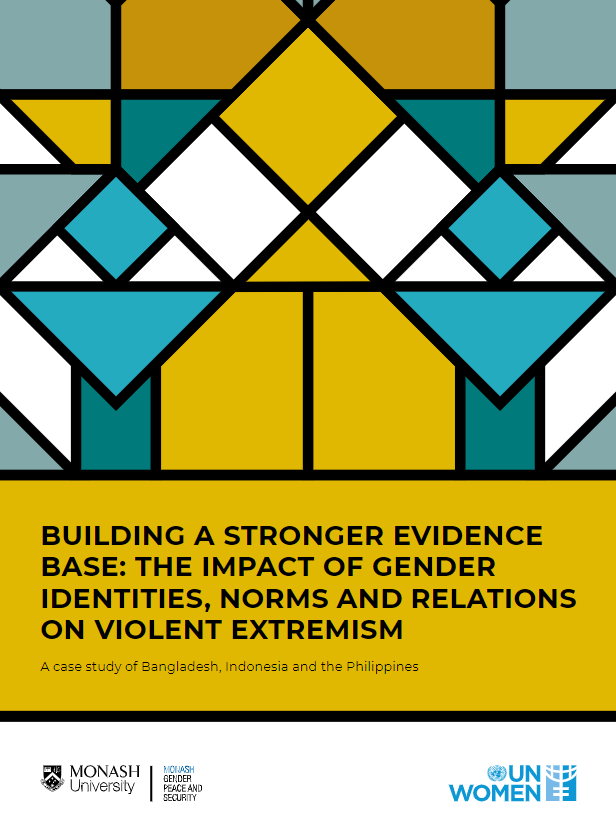Author(s)/editor(s)
Melissa Johnston, Jacqui True, Eleanor Gordon, Yasmin Chilmeran, and Yolanda Riveros-Morales
This report presents novel research findings – possibly the first such robust findings to date – on the relationship between support for misogyny, violence against women, and extremist violence in Bangladesh, Indonesia and the Philippines. Three key findings undergird the richness of information that was garnered through focus group discussions, interviews and survey results during fieldwork:
- Hostile sexism and support for violence against women are strongly associated with support for violent extremism. There is a positive and significant correlation in survey responses in all three countries and for both genders between support for violent extremism and their support for violence against women. In fact, ordered logit regression modeling of survey results found that in all three countries, people who support violence against women (that is, those who claimed that men are justified in using violence against women) are three times more likely to support violent extremism.
- No significant relationship was found between religiosity, age, gender and level of education achieved and support for violent extremism. Attitudes about violence against women explain more of the variation in support for violent extremism than other factors (such as age or education level) commonly theorised to explain individual support of violent extremism. Moreover, support for violence against women and the prevalence of hostile sexist attitudes are both better predictors of support for violent extremism than religiosity.
- Misogyny and support for violence against women are important and overlooked factors in compelling some people, including women, to support violent extremism. In fact, misogyny (or hostile sexism) is correlated strongly with violence against women. And in turn, there is a significant, positive and moderate correlation between misogyny and support for violent extremism, as well as a significant, though weaker relationship between benevolent sexism (that is, adherence to traditional gender norms or values) and violent extremism. Misogynistic attitudes among women are also strongly correlated with support for violent extremism. For example, in Bangladesh and Indonesia, the strength of this association is stronger and higher for women than for men.

